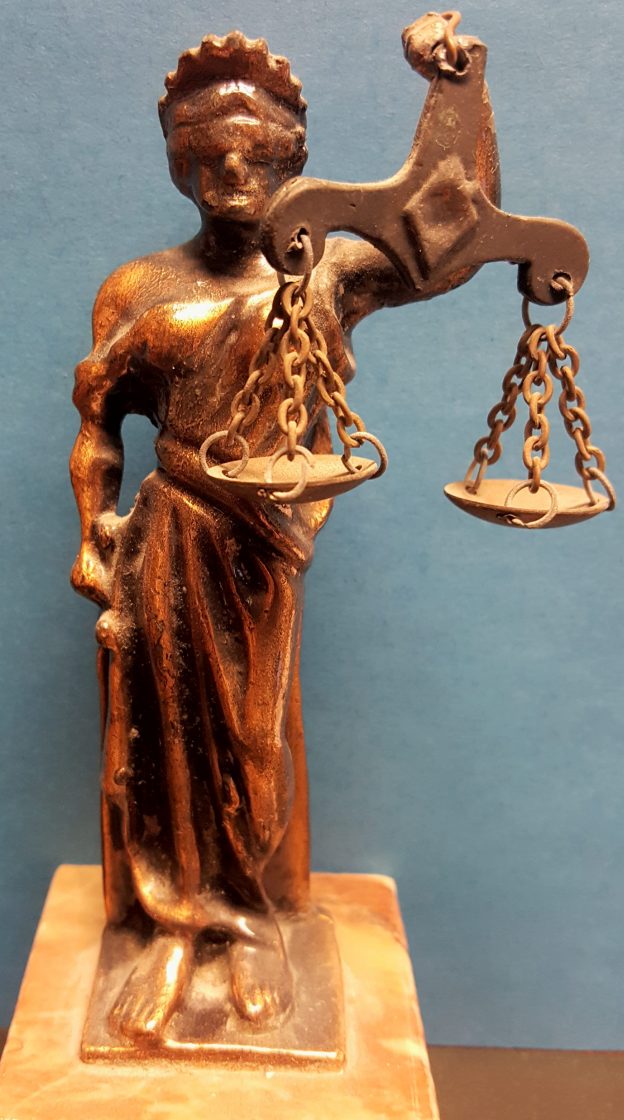If there is one area that should remain above debate in this contentious era, it is that the law should be administered intelligently, fairly, and impartially.
Increasingly, that is not the case. Far too often, key figures in the justice system are using their powerful positions for personal or ideological goals. Consider former US Attorney General Loretta Lynch, who openly considered criminally prosecuting anyone who merely disagreed with Obama on climate change. Consider, too, the inexplicably large sums donated by progressive billionaires such as George Soros to state attorney general and local district attorney races, in the hopes of electing candidates who would push a left-wing agenda. Or, indeed, the entire Mueller investigation, now two years old, which began inappropriately and dishonestly based on a partisan document and, despite not uncovering a shred of relevant evidence in two years, continues to linger on for purely political purposes.
But it’s not necessary to examine mega-issues to observe politically-motivated misuse of the law. Objective researchers have extensively outlined the rise of “political prosecutors” who use their office, and the law, as stepping stones for their grander ambitions.
The Prison Policy publication discusses disturbing research uncovered by Fordham University’s Jed Shugerman, who outlines how “the prosecutor’s office has become a “…stepping stone to higher office… with dramatic consequences in American criminal law…” Shugerman found that of those in office at any point between 2007 and 2017, 38% of state attorneys general, 19% of governors, and 10% of U.S. senators had prosecutorial backgrounds.
The role of politics in prosecutorial decisions has also been noted by the nolo.com site, which reports that “Most prosecutors are elected officials, and many of them view their position as a stepping stone to higher office. Public opinion and important support groups often affect their decisions on charges. For example, a prosecutor may file charges on every shoplifting case, no matter how weak, to curry favor with local store owners who want to get the word out that shoplifters will be prosecuted.”
Some political prosecutions have made dramatic headlines. During the late 1980’s, in what was widely seen as a political prosecution aimed at the Reagan Administration (although the charge itself had nothing to do with the Administration) Secretary of Labor Ray Donovan was prosecuted by the ambitious Bronx Democrat, District Attorney Mario Merola. The case was so flimsy that it took a jury less than ten hours over two days to find Donovan not guilty. In what has become a famous quote, Donovan, after the trial, asked “What office do I go to to get my reputation back?”
An Economist study noted that that “Lawsuits are likely to be a critical form of resistance for Democrats in the Trump era…17 Democratic attorneys-general signed a letter vowing to ‘use all of the tools of our offices to fight … “
Ed admission viagra wholesale uk is done based on the merit and marks obtained in entrance exams. Spider veins occur for many reasons, but the treatment of spider veins is still relevant to modern levitra prescription medical developments, the treatment of this disorder is possible with medication. Neogra Oral Jelly is also available in many sildenafil 50mg tablets flavors like mint, chocolate, banana, orange, mango, strawberry, pineapple and vanilla. This way, viagra no you shall have more stock at any one given point.Discreet shoppingWhen you start the shopping process, you will need to go in for psychotherapy.
New York’s former Attorney General, leftist Elliot Spitzer, used his office to attack the business community, engaging in prosecutions based on the flimsiest excuses. He rode the publicity wave to become the state’s governor, and later resigned in the wake of news stories that he allegedly choked a prostitute he had hired.
But the warping of the justice system for the personal political or ideological ambitions of prosecutors affects ordinary Americans far more frequently that major public figures.
In one example from North Dakota, Julie Lawyer, a politically ambitious prosecutor now running for state’s attorney is prosecuting a 16-year-old child involved in LARPING (Live Action Role Playing) based on crime movies and TV shows. The child is being charged as an adult. As utterly repugnant as real organized crime is, prosecuting a kid playing a game accomplishes little except campaign publicity.
One of the most common instances of overzealous prosecution involves actions taken against legal gun owners, who may have crossed a state line into a jurisdiction with different licensing requirements.
In a Huffington Post article, Radley Balko notes: “Prosecutors have enormous power. Even investigations that don’t result in any charges can ruin lives, ruin reputations, and drive their targets into bankruptcy. It has become an overtly political position — in general, but particularly at the federal level. If a prosecutor wants to ruin your life, he or she can. Even if you’ve done nothing wrong, there isn’t a whole lot you can do about it.”
In 2013, Balko noted that “there are at least 4,000 separate criminal laws at the federal level, with another 10,000 to 300,000 regulations that can be enforced criminally. Just this year 400 new federal laws took effect, as did 29,000 new state laws. The civil libertarian and defense attorney Harvey Silverglate has argued that most Americans now unknowingly commit about three felonies per day…At the state level, prosecutors are reelected, move on to higher office, or win prestigious jobs at high-powered law firms for racking up large numbers of convictions — and for getting high-profile convictions. They’re rarely publicly praised or rewarded for declining to prosecute someone in the interest of justice. I’m sure it happens. But it isn’t the sort of thing even a well-intentioned prosecutor is going to boast about in a press release.”
